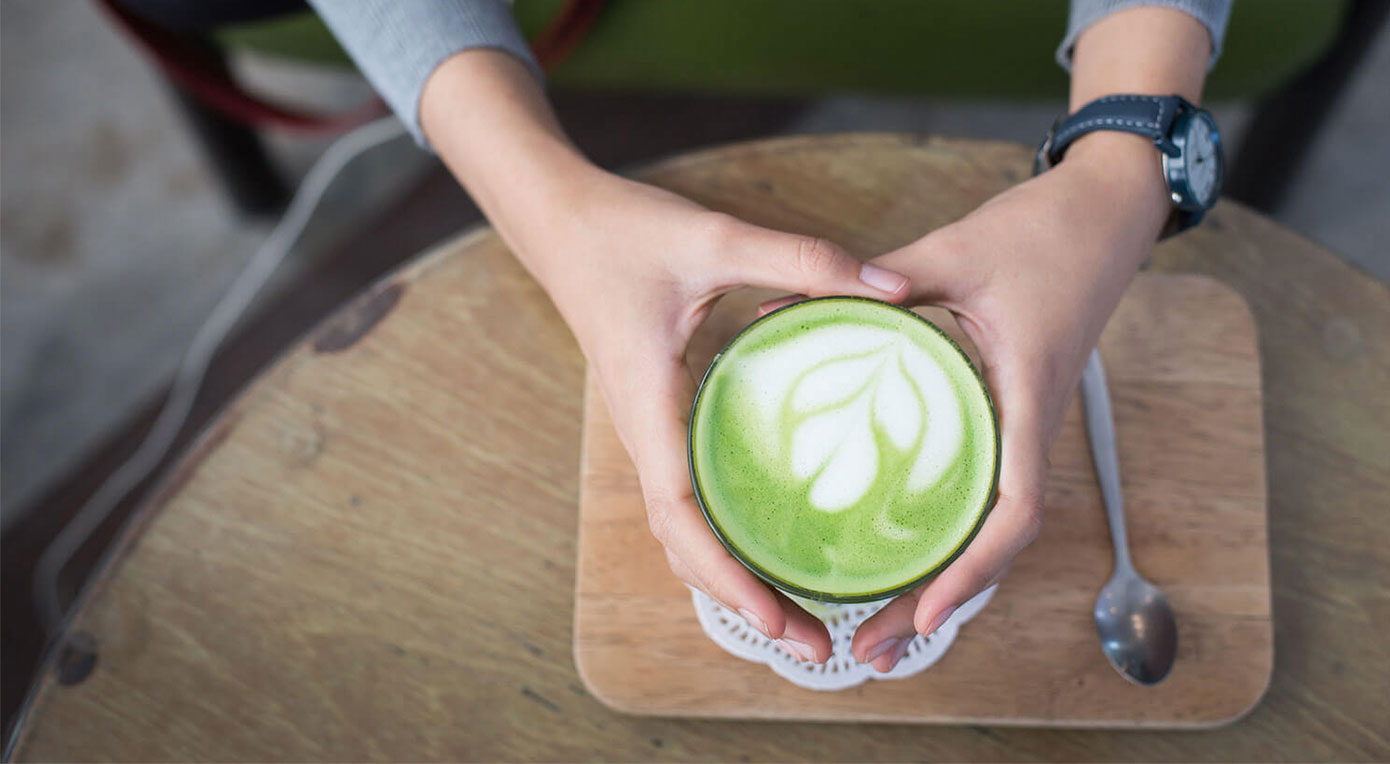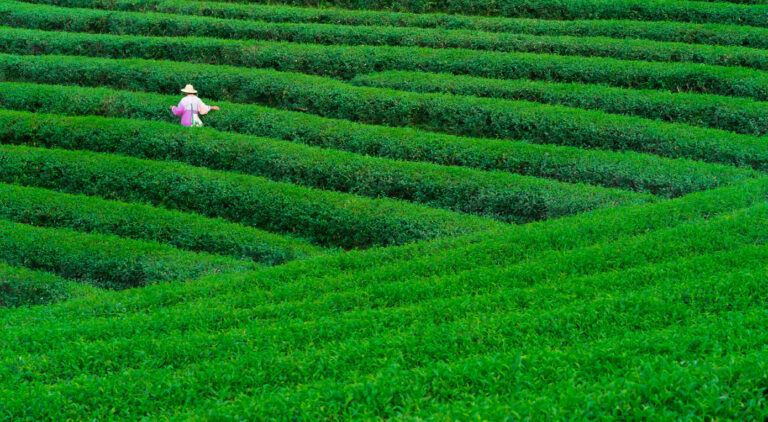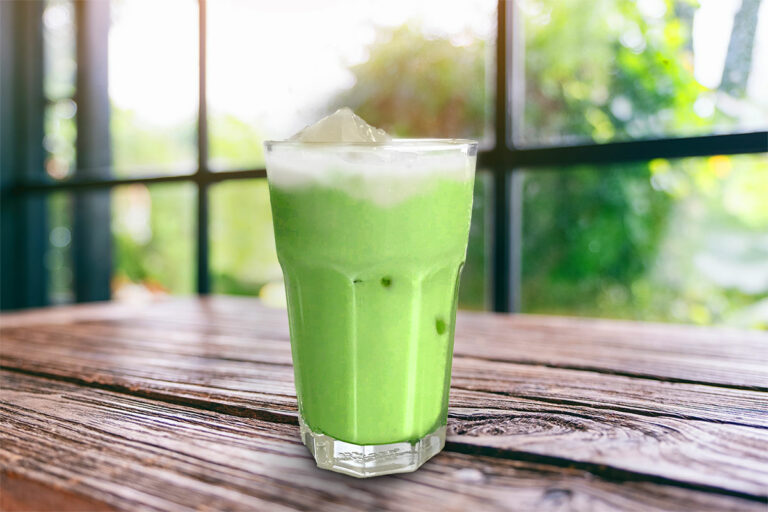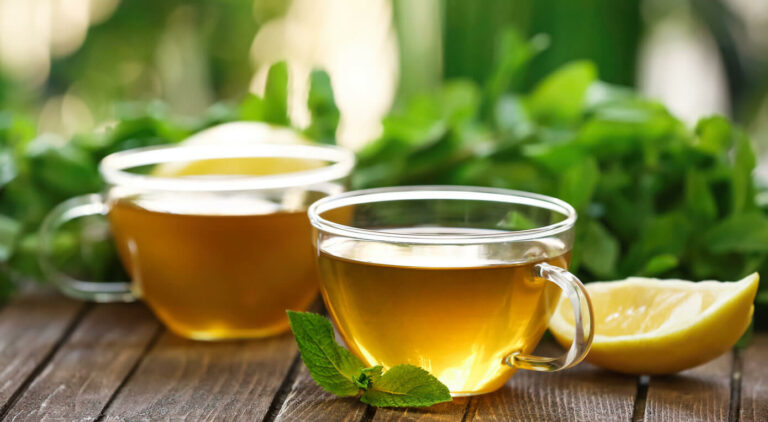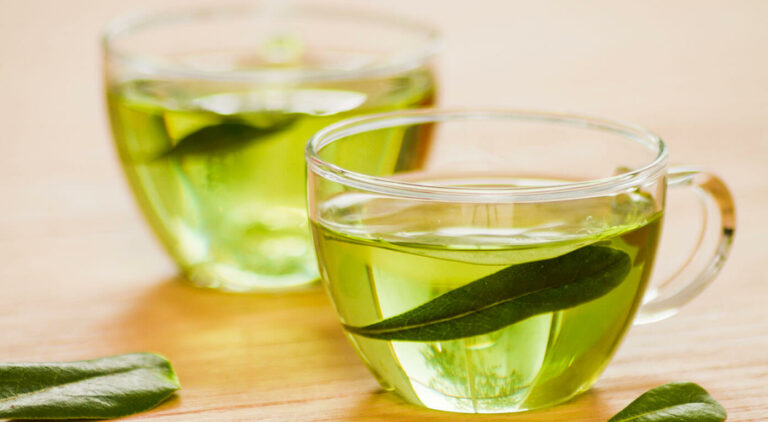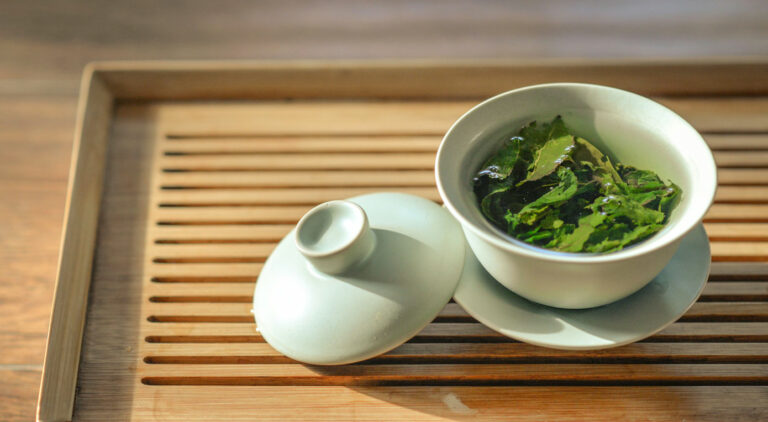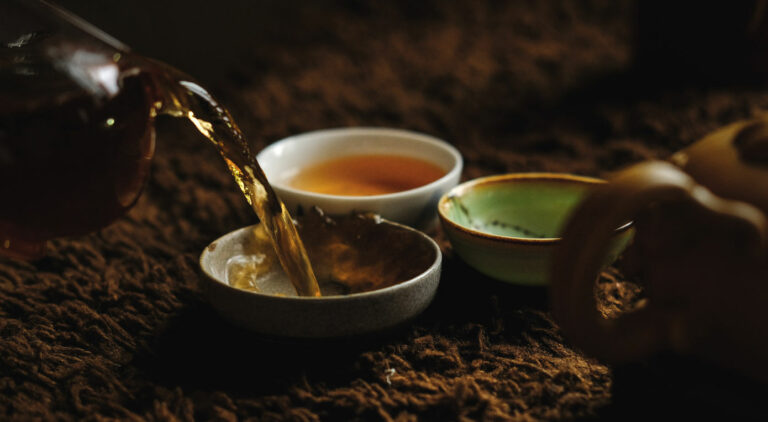Can You Put Milk in Green Tea?
Are you wondering can you put milk in green tea? There are many reasons why people enjoy a splash of milk in their drink, especially in strong black tea. Since green tea is made from the leaves of the Camellia sinensis plant, which is the same family of plants as black tea, if we can add milk to black tea, we may think that there’s no harm to adding milk to green tea.
However, the tea leaves are turned into green tea because they are harvested, processed, and dried in a different way from black tea. Before you do the same with your green tea as you do with your black tea, you may wish to find out if there’s any negative impact in adding milk to green tea.
How about popular beverages like matcha latte and various matcha smoothies out there? Are they safe to drink? Let us see what science says about drinking green milk tea.
Can You Put Milk in Green Tea?
Yes, you can, similar to adding milk to bubble tea, earl grey, English breakfast, and many other black teas. The taste of the tea and the health benefits of green tea with milk will depend on the type of tea you’d like to drink and the type of milk you add to your green tea.
Besides cow’s milk, you can also add alternative types of milk like non-dairy milk. Examples are soy milk, coconut milk, rice milk, oat milk, almond milk, and cashew milk.
Adding milk to green tea can make a more flavorful and delicious drink. The flavor of green tea will depend on the amount of milk you add and your green tea concoction with the type of milk.
Is Green Tea Good With Milk?
Green tea on its own tastes great, and it is often considered to have the most positive effects on our bodies than most teas. The great thing about green tea is that it contains essential nutrients that help our body with better brain function, heart health, blood flow, and help to lower blood pressure.
Among all true teas, it has one of the most antioxidant properties because the process of producing it preserves most of the natural tea polyphenols[1]https://www.researchgate.net/publication/309891301.
If green tea is revered as one of the best teas ever for our health, does adding milk to green tea make it better or worse?
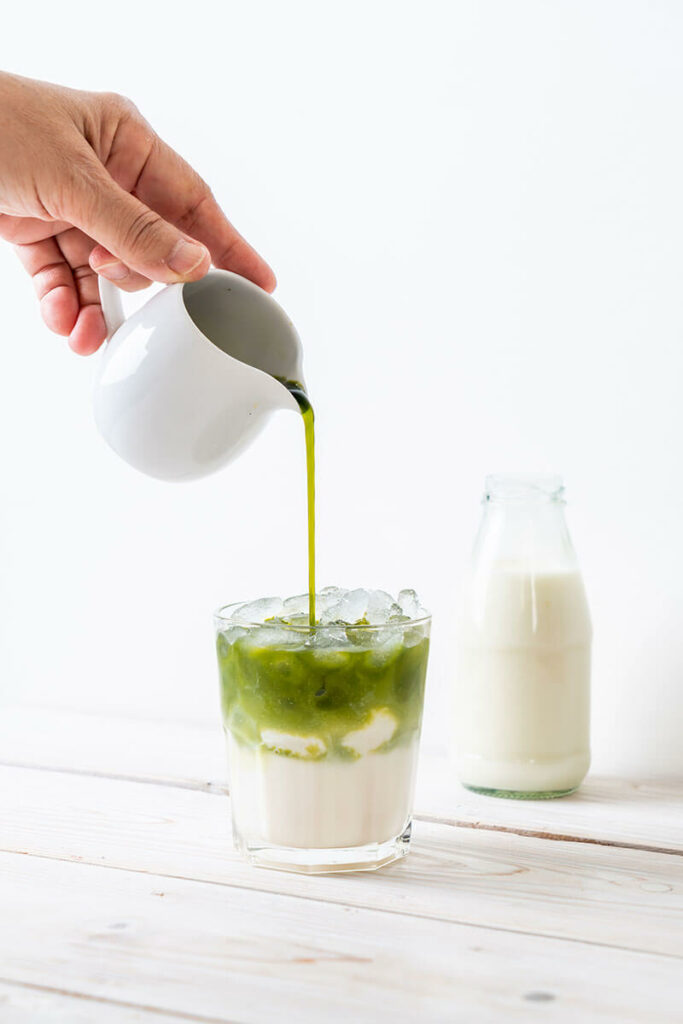
Here’s Why You Shouldn’t Put Milk in Green Tea
Nothing bad or dramatic will happen to you if you add milk to green tea. At the same time, you may not wish to add milk to green tea because as much as it can make it tasty, the addition of milk can also alter the delicate green tea flavor.
In the case of effects on health, true teas in general, including green tea helps protect the body against cardiovascular diseases such as congenital heart disease, heart attack, heart failure, and diseases related to the circulatory system. But the effect is different when milk is added.
In a study published in the European Heart Journal, it was found that these protective effects on cardiovascular diseases were inhibited when milk is added to black tea. This is due to the reaction between milk proteins and the catechins in tea [2]https://pubmed.ncbi.nlm.nih.gov/17213230/.
The study may be done on black tea, but the results may be the same if green tea was used. That’s because both teas contain catechins, a type of natural phenol and antioxidant found in fresh tea leaves.
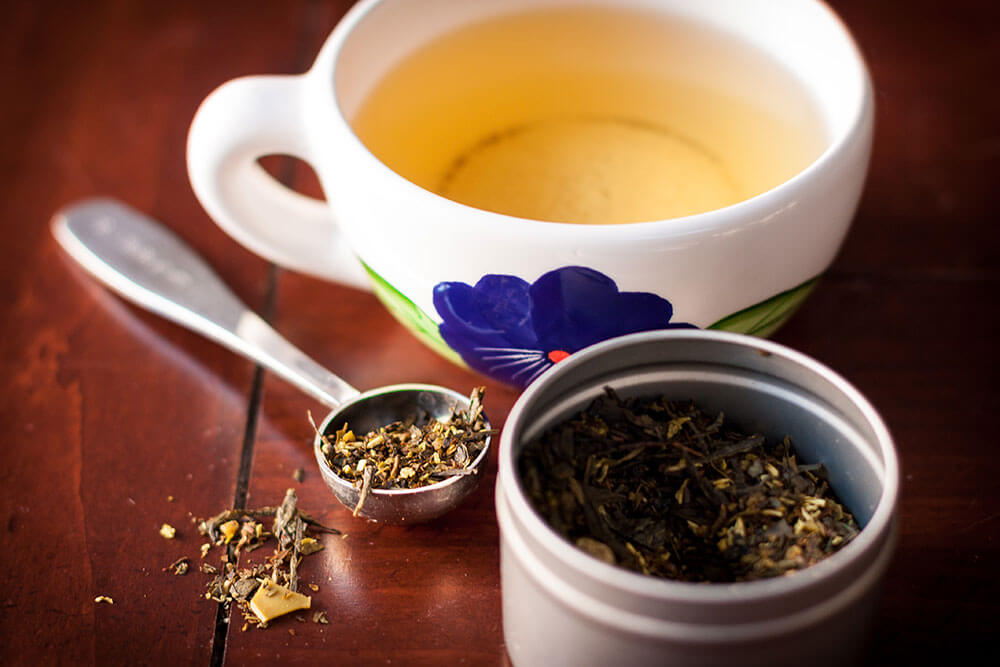
Health Benefits of Green Tea with Milk
Slows Down Aging Effects
As we start to grow older, naturally we see more signs of aging be it more wrinkles on our skin, more age spots, and drier skin. This is inevitable by nature because as we grow older, our skin and body are exposed more to factors that result in oxidative stress. This leads to more free radical activity, causing damage to cells, fatty tissue, DNA, and proteins in our bodies over time.
Green tea on its own has the necessary powerful antioxidant called epigallocatechin gallate, or EGCG to combat signs of aging and fight DNA damage [3]https://pubmed.ncbi.nlm.nih.gov/26114360/. When we drink green tea, some of the antioxidants in the tea go into our bloodstream and do their job to protect us from free radicals. But for it to be effective, the EGCG has to be properly absorbed and delivered throughout the body. Sometimes they get destroyed when they interact with other substances in our bodies. We won’t know for sure how much is being used effectively.
We shouldn’t drink too much green tea as well, because that may in turn lead to side effects and make us sick. For us to make better use of green tea in slowing down the process of aging, milk can be added to green tea.
In a study published by the Journal of AOAC INTERNATIONAL, researchers found that elderly participants who received green tea infused with milk showed a significant reduction in skin wrinkles and roughness. Evidently, milk can be used as a vehicle for delivering these antioxidants that are present in green tea. The dairy milk proteins interact with the compounds of green tea to protect the antioxidant properties and activities inside the unstable intestinal environment. This in turn helps to reduce oxidative stress, reduce wrinkles and improve skin conditions [4]https://pubmed.ncbi.nlm.nih.gov/31242953/.
Maintains Gut Health
Many people are suffering from digestive issues due to an imbalance in good and bad bacteria piling up in the gut. An unhealthy gut leads to stomach discomfort due to too much gas, bloating, constipation, diarrhea, and heartburn.
One way to reduce such symptoms and maintain your gut health is to take foods rich in probiotics that contain healthy bacteria like fermented milk or yogurt. Probiotics contain good bacteria like Lactobacillus acidophilus and Bifidobacterium that help to react with other bacteria in the gut and regulate the digestive system.
A study published by the International Journal of Farming and Allied Sciences found that green tea-fortified milk and yogurt were characterized by a higher number of viable Lactobacillus acidophilus and Bifidobacterium bifidum cells compared with plain milk and yogurt. Hence, adding the right amounts of green tea to milk and yogurt can enhance the probiotic functions that are already present. The addition of green tea in the process of milk and yogurt is recommended because green tea is a natural herbal product with a wide range of beneficial and nutritional properties [5]https://www.researchgate.net/publication/286142529.
How to Brew Green Tea Latte
You don’t have to visit Starbucks every time you crave a nice cup of tea like a green tea latte or matcha latte. You can whip up the best green tea in the comfort of your own home. All you need is Japanese green tea powder or matcha powder, a matcha whisk, a fine sifter or strainer, any type of milk, for example, whole milk, and a mug.
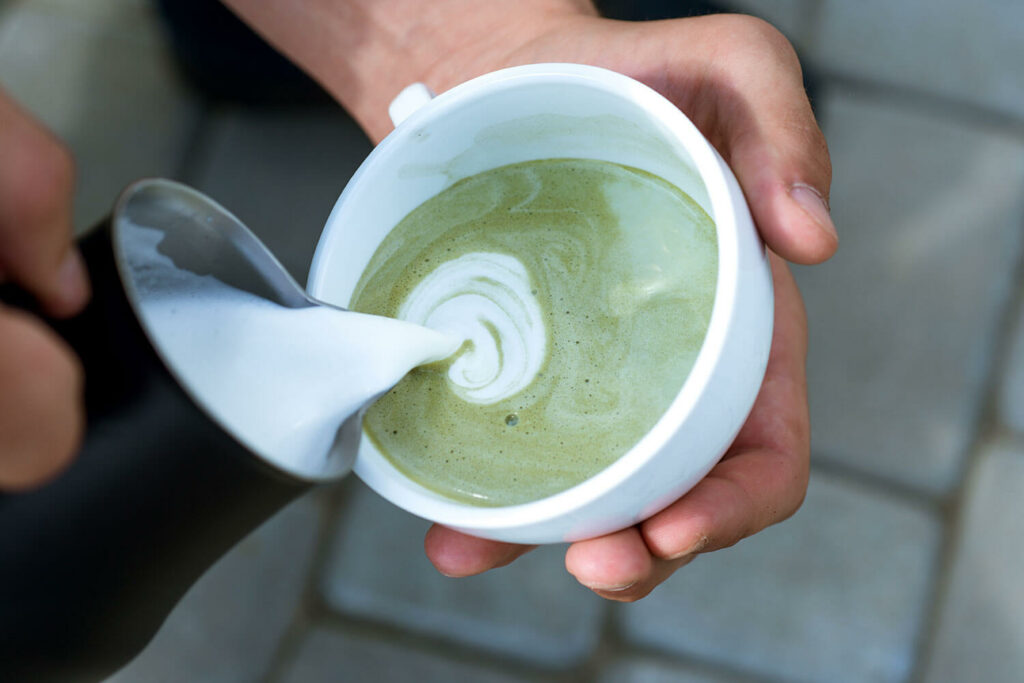
Step 1: Sift Matcha Powder
Using a fine sifter or stainer, sift one teaspoon of matcha powder into your mug of about eight ounces or 236 millimeters in size.
Step 2: Whisk with Hot Water
Slowly put hot water (not boiling water) into the mug of matcha powder. Then, whisk or stir the powder and water with a matcha whisk. Do this until the water and matcha powder is completely mixed well till the texture is smooth with no lumps.
Step 3: Add Milk
Heat up about 3/4 cup milk but do not let it boil. Warm milk will do just fine. Pour the warm milk into your cup of matcha paste and whisk them together.
Drink and enjoy!
Drink Green Tea with Milk
The addition of milk to your cup of green tea is not harmful to your health. Overall, some of the positive effects of green tea and milk can be enhanced when taken together. A good amount of milk helps create a creamy texture to your green tea, creating a delightful experience.
